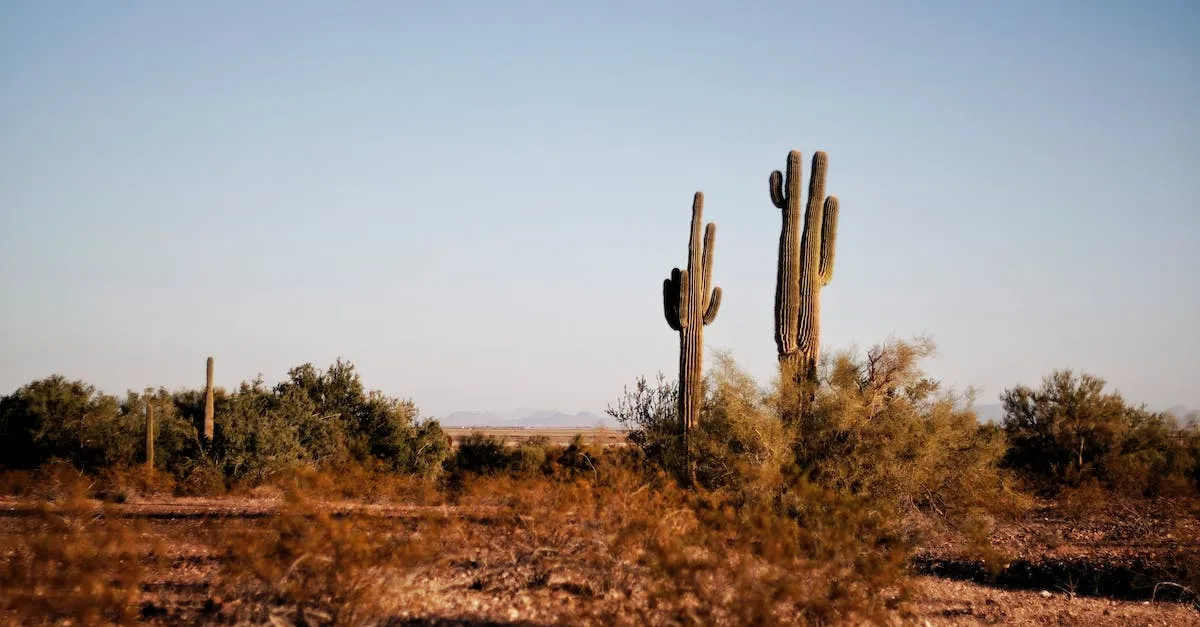Why You Shouldn’T Move To Texas
Texas has long been touted as a great place to live, work and raise a family. However, looking beneath the surface reveals some compelling reasons why Texas may not be the right fit for everyone.
If you’re short on time, here’s a quick answer to your question: Texas has issues with extreme weather, restrictive abortion laws, high property taxes, and an unreliable electric grid.
In this comprehensive guide, we will explore multiple factors related to living in Texas, including the climate, politics, cost of living, and infrastructure. By weighing the pros and cons, you can make an informed decision on whether Texas is truly the best place for you and your family to call home.
Texas Experiences Extreme Weather
When considering a move to a new state, it’s important to take into account the climate and weather conditions. In the case of Texas, it’s no secret that the state experiences extreme weather throughout the year.
From blistering heat in the summer to dangerous cold snaps in the winter, Texas weather can be quite challenging to deal with.
Blistering Heat in the Summer
One of the main reasons why you might want to think twice before moving to Texas is the blistering heat that the state experiences during the summer months. Temperatures frequently soar above 100 degrees Fahrenheit (37.8 degrees Celsius), making it difficult to enjoy outdoor activities or even venture outside for extended periods of time.
The intense heat can also pose health risks, especially for young children, the elderly, and individuals with certain medical conditions.
According to the National Weather Service, Texas consistently ranks among the top states in the United States for the highest number of heat-related illnesses and deaths each year. It is crucial to take precautions such as staying hydrated, wearing appropriate clothing, and seeking shelter in air-conditioned spaces to avoid the harmful effects of extreme heat.
Dangerous Cold Snaps in the Winter
While the summer heat in Texas can be unbearable, the state also experiences extreme cold snaps during the winter months. In recent years, Texas has been hit with severe winter storms that have caused power outages, water shortages, and dangerous road conditions.
These cold snaps can be particularly challenging for residents who are not accustomed to dealing with freezing temperatures and icy conditions.
During these cold snaps, temperatures can plummet below freezing, making it necessary to take extra precautions to stay warm and safe. It’s important to ensure that homes are properly insulated, to have emergency heating sources available, and to be prepared for potential disruptions in utilities.
It’s worth noting that extreme weather events are becoming more frequent and intense due to climate change. Texas is not exempt from these changes, and residents should be prepared for the possibility of more extreme weather in the future.
Ultimately, while Texas may have its attractions and benefits, it’s essential to consider the challenges posed by its extreme weather conditions. Before making the decision to move to Texas, it’s wise to thoroughly research and understand what you’ll be facing in terms of the climate and weather.
Restrictive Abortion Laws
One of the reasons why you may think twice about moving to Texas is due to its restrictive abortion laws. The state has been at the forefront of implementing policies that limit access to abortion services, causing concern among reproductive rights advocates.
Near Total Abortion Ban
Perhaps the most significant aspect of Texas’ abortion laws is the near total ban on the procedure. In 2021, the state passed a law known as Senate Bill 8 (S.B. 8), which prohibits abortions once cardiac activity is detected, usually around six weeks gestation.
This ban is before many individuals even realize they are pregnant. It is important to note that this ban applies regardless of whether the pregnancy is a result of rape or incest.
This near total abortion ban has been met with criticism and legal challenges. Many argue that it infringes upon a person’s constitutional right to choose and places an undue burden on individuals seeking abortions.
The law also allows private citizens to sue anyone who aids or abets an abortion after six weeks, including healthcare providers. This unique enforcement mechanism, known as the “bounty” provision, has raised concerns about potential harassment and vigilante justice.
Bounty Lawsuits Against Providers
Under Senate Bill 8, individuals can file lawsuits against those who provide or assist in an abortion after six weeks, offering a financial reward of at least $10,000 if successful. This provision has created a hostile environment for abortion providers and has the potential to significantly impact their ability to offer reproductive healthcare services.
The bounty lawsuits against providers have sparked outrage and concern among healthcare professionals. They fear that the fear of legal repercussions may lead to a decrease in the number of clinics and providers willing to offer abortions in Texas.
This reduction in access to safe and legal abortion services can have serious consequences for individuals who may seek alternative, potentially dangerous methods to terminate a pregnancy.
It is important to stay informed about the current state of reproductive rights laws in Texas and the potential impact they may have on individuals’ access to abortion services. For more information, you can visit reputable sources such as the Guttmacher Institute or the Planned Parenthood Texas v. Abbott case.
High Property Taxes
When considering a move to Texas, one important factor to consider is the high property taxes in the state. Texas is known for having some of the highest property tax rates in the country. This means that homeowners in Texas can expect to pay a significant amount of money each year in property taxes.
No State Income Tax
While Texas does not have a state income tax, this absence is offset by the high property tax rates. Without a state income tax, individuals may initially be drawn to Texas for its potential financial benefits.
However, it is crucial to understand that property taxes can often take a substantial chunk out of homeowners’ budgets.
Heavy Reliance on Property Tax for Revenue
One of the reasons for the high property tax rates in Texas is the heavy reliance on property taxes for revenue. The state relies heavily on property taxes to fund public services such as education, infrastructure, and public safety.
This heavy reliance on property taxes can lead to increased financial burden on homeowners.
According to a report by the Texas Comptroller’s Office, property taxes accounted for over 40% of total revenue for local governments in Texas in 2020. This reliance on property taxes can result in higher tax bills for homeowners, especially in areas with increasing property values.
It is important for individuals considering a move to Texas to carefully evaluate their financial situation and budget for the potential impact of high property taxes. While Texas may offer other financial advantages, such as a lower cost of living or job opportunities, it is essential to weigh the pros and cons before making a decision.
For more information on property taxes in Texas, you can visit the official website of the Texas Comptroller’s Office at https://comptroller.texas.gov/.
Unreliable Electric Grid
One of the reasons why you shouldn’t move to Texas is its unreliable electric grid. The state’s power infrastructure has been a cause for concern, especially during extreme weather conditions.
Grid Failure During 2021 Winter Storm
Texas experienced a devastating winter storm in February 2021, which exposed the vulnerabilities of its electric grid. The freezing temperatures caused power plants to go offline, leading to widespread blackouts across the state.
Millions of Texans were left without electricity for days, facing freezing temperatures and a lack of essential services. This grid failure highlighted the need for significant improvements to the state’s power infrastructure to ensure reliability during extreme weather events.
Risk of Brownouts During Heat Waves
Another issue with Texas’ electric grid is the risk of brownouts during heat waves. The state is known for its scorching summers, with temperatures often soaring above 100 degrees Fahrenheit. The high demand for electricity to power air conditioning units puts a strain on the grid, increasing the likelihood of brownouts where power supply is intentionally reduced to prevent a complete blackout.
This can be especially concerning for individuals who rely on electricity for medical equipment or for businesses that depend on uninterrupted power supply.
According to the Electric Reliability Council of Texas (ERCOT), the organization responsible for managing the state’s electricity grid, there is a need for investment in infrastructure upgrades and diversification of energy sources to ensure a more reliable and resilient grid.
These measures would help mitigate the risk of grid failures and provide a more stable electricity supply for residents and businesses in Texas.
While Texas offers many attractions and opportunities, it’s important to consider the reliability of the electric grid before making the decision to move to the state.
Conclusion
While Texas offers warm weather, ample jobs and no state income tax, significant downsides exist. Extreme weather, abortion restrictions, high property taxes and an unreliable electric grid present major challenges. Carefully weigh the pros and cons before deciding if the Lone Star State is right for you.








